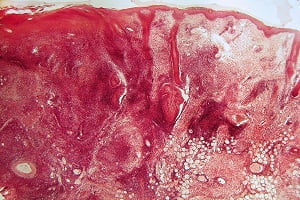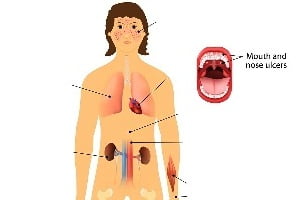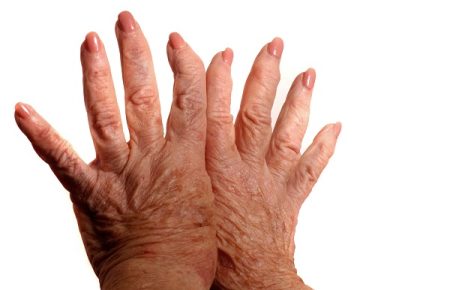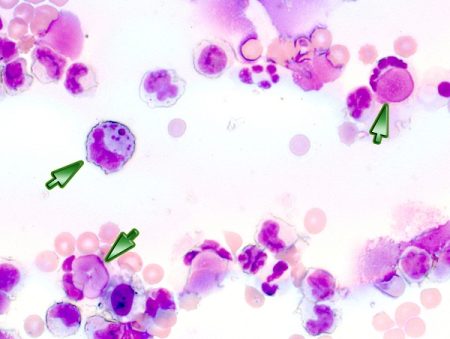What Causes Lupus?
- Updated on: Jul 29, 2024
- 3 min Read
- Published on Oct 3, 2019

Who Gets Lupus?
Anyone can get lupus. But women are about nine times more prone to develop lupus as compared to men. Women, especially from African-American origin, are more susceptible to develop lupus in comparison to white women. Lupus is more reported in people within the age group of 16-45 years. People having a family history of lupus develop lupus more commonly. Read more about lupus.
Causes of lupus
Researchers believe that a combination of some inside, as well as outside factors like hormones, genetics or environmental factors, leads to the development of lupus. However, the exact cause is still unknown.
Lupus is an autoimmune condition which is caused by a complex combination of all the factors together. Some people have inherited genes that make them more susceptible to develop lupus.
Doctors often ask about family history of lupus when a person shows early signs and symptoms. They are asked whether they have a family member with lupus or any other autoimmune disorder. Read about symptoms and signs of lupus. Researchers found a link between lupus and cluster of genes.
Following are the main causes of lupus:
Genetics
The genetic makeup of some people makes them more susceptible to lupus. More than 50 genes have been identified that are associated with lupus. However, most of these genes do not directly cause lupus but contribute in some or the other way. For instance, there are 25% chances that identical twins of a person with lupus will develop this disease.
In most of the cases, genes are not enough. An environmental condition in which a person is raised also plays a major role. Lupus can also develop in people with no family history of it but when there is some other autoimmune disease.
The knowledge of genes associated with lupus is still growing. Following are the genes that cause lupus:
- MHC genes represent two classes of genes- MHC Class I and MHC Class II genes are associated with lupus. Major histocompatibility complex or MHC genes codes for protein against any foreign body (antigen) and thus helps to shape up the immune system. Specifically, lupus involves defects of the genes for complement proteins C4 and C2.
- Other genes that code for variants of opsonins is associated with lupus. Opsosins are involved in a process where macrophages (cells of the immune system) engulf antibodies after they attach to antigen (foreign particle).
Environmental conditions
Studies suggest that environmental agents like a virus or any chemical may trigger this disease in a genetically susceptible person. Environmental factors are said to trigger lupus but causes of flares are still unknown.
Though specific environmental agents have not been identified, some of the common triggers are:
- ultraviolet light from sunlight or incandescent bulbs
- sulfa-drugs, which make a person more sensitive to the sun (like sulfisoxazole, Gantrisin, Orinase, Azulfidine, diuretics etc).
- penicillin or other antibiotic drugs such as amoxicillin, cloxacillin
- other drugs like hydralazine, procainamide, and isoniazid
- infections, cold and viral diseases like Epstein-Barr virus, herpes zoster virus, cytomegalovirus
- exposure to silica dust (used in industrial and agricultural setting)
- exhaustion and tiredness
- emotional stress
Apart from above-mentioned factors, physical stress like physical harm, pregnancy or surgery may also initiate lupus-like symptoms.
Hormones
Hormones are messengers present in the body that regulate many functions. It is seen that women are nine times more vulnerable to develop lupus as compared to men. The reason behind this can be explained by sex hormones and relative strength of immune system in males and females.
The female body generates estrogen as a sex hormone while male body produces androgens as a sex hormone. Estrogens are known as “immune-enhancer” which strengthens the immune system. Thus the immune system of females is stronger as compared to males. For this reason, the incidences of lupus are more reported in females.
The level of estrogen somehow regulates the severity of lupus. However, no causal effect of the hormone is seen in pregnant women or in women taking birth control pills.












